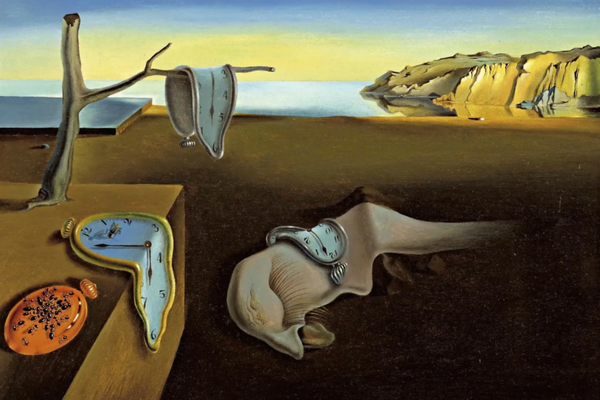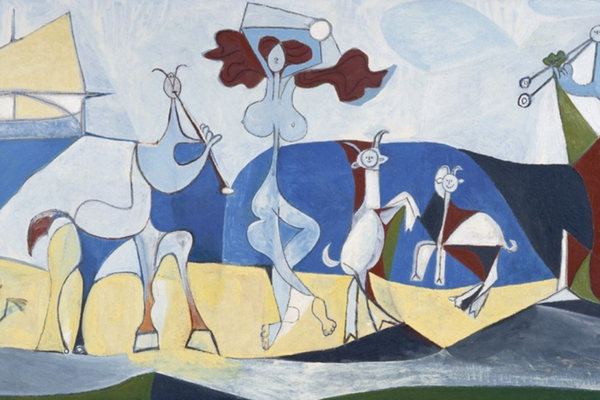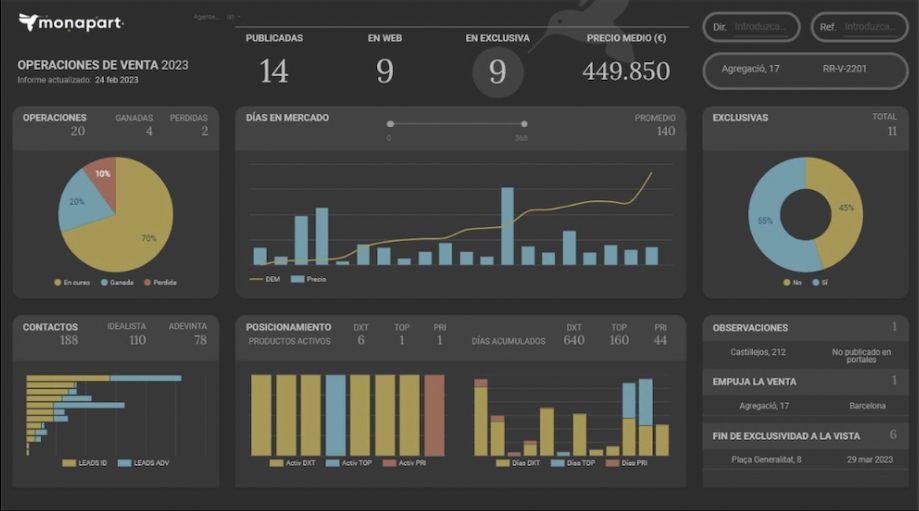From transactional to experiential: the key to real estate success
Experience as the key to success in the real estate sector.
A very premise: in service companies, the product is experience. And despite the tiresomeness of the word experienceabused until it has lost all lustre and meaning, in real estate it is the key to success, and real estate professionals who do not foster and nurture the bond with their client beyond service are missing the mark and are slow to realise it.

The first to talk about "consumer experience" were Holbrook and Hirschman in 1982, because, they said, the product or service was no longer enough. Just as Joel Burslem of 1000watt does when he says compares real estate to DisneylandIn fact, we see how such disparate worlds share a common goal (or should): to create good memories, positive experiences.
Disneyland's business isn't really about the coasters, or the merchandise, or the corn dogs... that's how they make money, sure. But the truth is Disneyland is in the business of making memories.
There is no doubt that the real estate sector bases its business model on generating leads, attracting new clients, closing deals and retaining a percentage of each transaction, in the same way that Disneyland generates money from ticket sales, restaurants or souvenir shops full of merchandising. But it is one thing to "make money" and another thing to be successfulunderstood here as the ability to create such a memorable experience for the customer that they will always remember you with a smile, want to repeat and, above all, recommend you.

The Persistence of Memory - Salvador Dalí (1931)
Experience, difference, survival
Companies are no longer convinced by offering a good product (tangible), it is not enough to offer the best possible service (intangible), they have to move to a new level of value creation for their customers to differentiate their offer: the (memorable) experience. In saturated markets and sectors as atomised as real estate, moreover, making a difference is purely a matter of survivalWhy? Firstly, as an element that differentiates it from its competitors. Secondly, because the customer journey is one-way in most cases and as we cannot encourage repetition (come on, sell your house, it's time!) we should encourage recommendation, which is like going back without going.
Michela Addis defines the experience marketing as follows:
"It is the name given to the most recent and innovative set of policies and strategies focused on the search for a new source of competitive advantage based on the emotional involvement of customers and the creation of experiences linked to the product or service. It is, in other words, the search, on the part of companies, to emphasise the differentiation of their offerings".
There is no doubt that the best experience starts with providing the best possible real estate service. For the seller, it's "not knowing you're selling", a seamless, frictionless, headache-free service, seamless. Know the customer well, understand their needs and don't fail. According to Herzberg, this is the hygiene factor, "what you are hired for". So where does experience fit in? In what he called the motivational factor: everything that is extra, that complicates everything, but makes it infinitely more fun and is now indispensable.
//www.youtube.com/embed/G7Dt9ziemYA
It is the what, but above all the how, and the who!
Bernd Schmitt in his book Experience Marketing (1999) defined five possible types of experiences that companies can manage in order to "build" full customer satisfaction:
- Sensory experiencesFor example, customers entering a fast food restaurant chain Panera Bread are immediately greeted with the smell of freshly baked bread and pastries. Do you know anyone who doesn't stop at this aroma?
- Experiences of feelingsare the most difficult and are cultivated little by little, over the course of the relationship. They are affective experiences that range from positive moods linked to a brand to strong emotions of joy and pride of belonging. In this sense, many brands call their followers by a certain name (#monaparters are Monapart's fans, for example), address them, distiguish them and recognise them. Are you in or are you out? Are you one of us?
- Experiences of thought: making customers think can generate surprises and generate attraction. They are very present in issues related to ecology, education, social solidarity... It can even be the proposal of a new way of consuming a product. Many companies advocating zero waste or the circular economy propose new forms of use (#cosmeticasolida), of non-consumption (#adiosalplastico), to cite a few examples.
- Performance experiencesThe Dans le Noir restaurant in Barcelona offers a completely dark dining experience: they refer to experiences that enrich the lives of customers by broadening their physical experiences, showing them alternative ways of doing things. Dans le Noir restaurant in Barcelona offers a completely dark dining experience!
- Relationship experiencessocial experiences involving community feelings, cultural values, groups, clubs, collective identities, movements or trends. They usually appeal to the desire for individual improvement. The Juno House women's club in Barcelona, for example, seeks to foster professional and personal collaboration between women.
Sensory, emotional, rational, attitudinal or relational, all these experiences require a Mr. PLUS. A lot of creativity, obsession, effort. The path of how to look at the long term is more expensive, of uncertain success, but it is infinitely more fun. And why are we getting into this mess? For a very simple reason: because for a brand, an evangelist is much more valuable than a customer.. As I read in this post to Marta D. Riezu, "mediocre brands have buyers, interesting brands have fans."I couldn't agree more. As I also read in the book Growing by growing from Xavier MarcetThis is exactly what differentiates a company from a business. In a sector like real estate where sales go up and down, come and go, the link with the client must always remain, like the aftertaste of a good coffee.
How do you cultivate this bond with the customer? Do they feel important within the organisation? Do you listen to them? Do they ask for feedback? Do they get personalised attention? How do you manage a crisis? Do you call them to congratulate them on their birthday, do you reward them for their loyalty? ... There are many ways to analyse and improve the customer experience (here Forbes proposes 15), but in any case, as Joel Burslem says, ".is an intelligence that all companies should exercise."
And the who? The role of the real estate agent in creating the customer experience is decisive, because in one-to-one, the real estate agent is ALL the agency in the eyes of the client.. He or she is the bearer of good or bad news and the success or failure of the relationship depends on him or her. So I ask myself: do estate agents have this intelligence / company culture that recognises this "last link" role for their agents, that fosters in them a willingness to exceed expectations and always go the extra mile for their clients, to let them go beyond the margins of the simple economic transaction to nurture and nourish that relationship and turn a client into an evangelist?

In one-to-one, the agent is the agency.
[Endnote] How does technology affect the experience?
It's been said ad nauseam (come on, one more time), real estate is a people-to-people sector. We sell confidence in a highly involved transaction such as the purchase / sale of a property. The information is now available to everyone, on Google or ChatGPT, but the link to the customer always belongs to the brands.. As the sales expert says Iban Solé: "The information salesman is dead. The customer wants solutions, because information is in his pocket 24/7."The selling client does not look for the real estate professional because he needs him (around 50% of real estate transactions in Spain are between private individuals) or for information, he looks for him because he wants to be free of worries, because he trusts his expertise, he wants to be constantly accompanied, he wants his intelligence n-a-t-u-r-a-l. BUT, the agent does not reach everything, as we are no longer faced with a much more informed, digitalised, impatient and empowered client, thanks precisely to technology, which has radically modified our relationship with brands and our buying process.
Technology comes into play precisely to offer, through different applications or tools, a frictionless sales experience to the client, with total access and control of information, transparent and contemporary. The agent can offer his client, for example, 24/7 access to all the steps involved in the sale of his flat by accessing his owner's panel in the CRM; save him time and money by carrying out online procedures or signatures without forcing him to travel thanks to the digital signature; send him notifications and warnings automatically, etc. etc. etc. The time that technology frees up for the agent in these low-value tasks allows him to spend it on high-impact tasks: taking care of his customer..

If technology and artificial intelligence complement (important word) the natural intelligence, knowledge and expertise of the agent, we will have an invincible real estate cocktail and we will sow and nurture a network of happy customers who will spread spores of happiness associated with our brand.
In service companies, the product is the experience. And despite the tiredness of the word experience, abused until it has lost all lustre and meaning, in the real estate sector it is the key to success, and real estate professionals who do not foster and nurture the bond with their client beyond the service, are missing the script and are slow to realise it.





